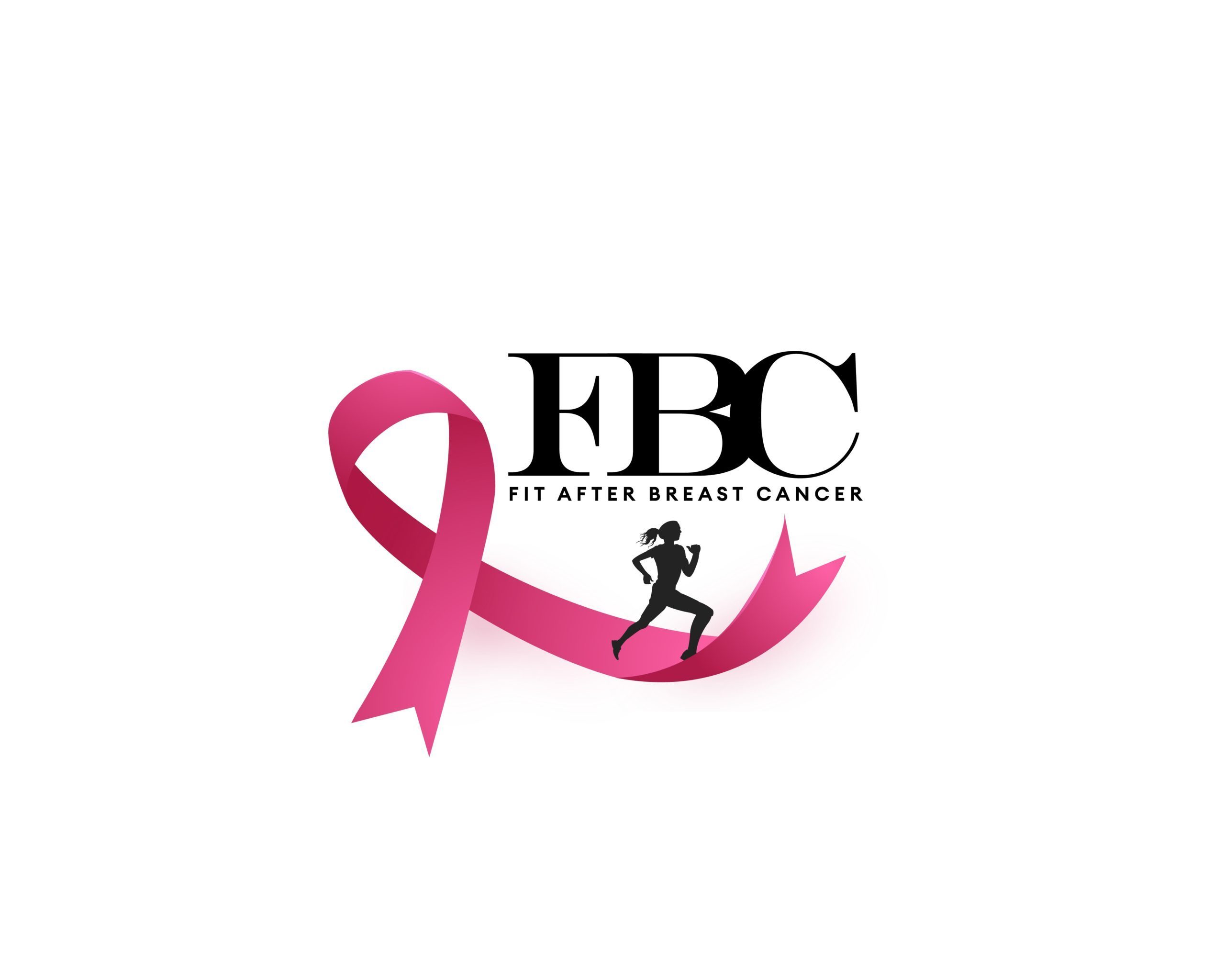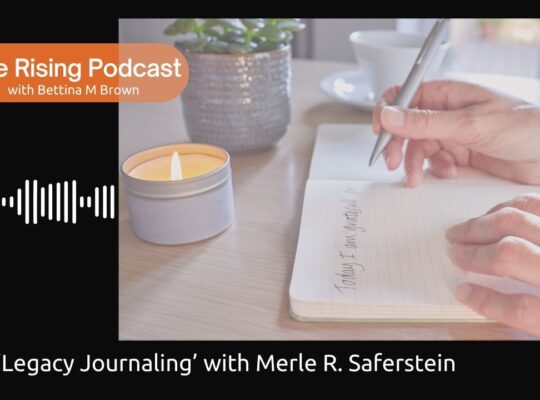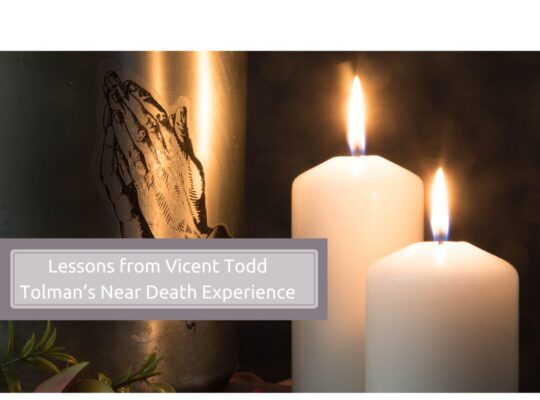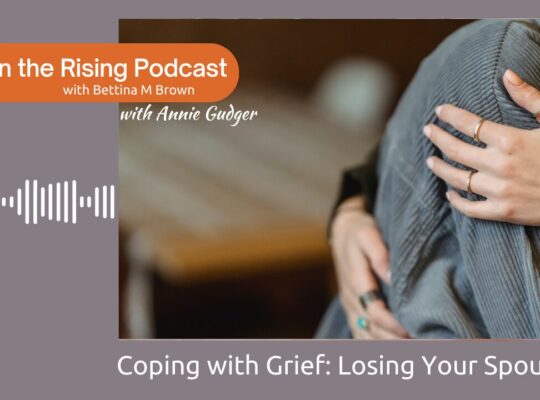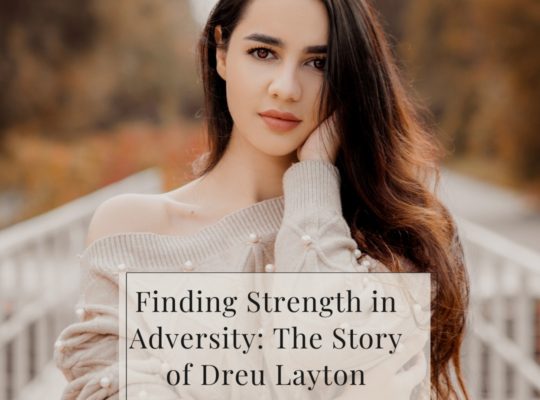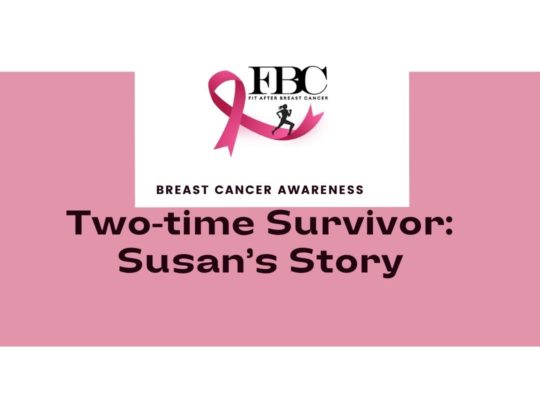Cancer can be an incredibly challenging and emotional journey, not just for the person diagnosed but also for their loved ones. As a couple faces this life-altering experience, the dynamic of their romantic relationship can undergo significant changes. Romantic relationships can be the first thing that is affected by these tough times. What was once a stable and loving partnership may become fraught with tension, stress, and unspoken fears.
With time, even the most committed couples can find their relationships feeling strained or distant. In this blog, I share conversations with guests on In the Rising Podcast exploring how cancer affects relationships, and offer helpful strategies to keep love alive during these trying times.
Understanding the Emotional Impact of Cancer on Relationships
For many couples, a cancer diagnosis can serve as a reality check – a sudden reminder of life’s fragility and the uncertainty of the future. It’s not uncommon for both partners to experience a wide range of emotions such as fear, sadness, anger, guilt, and helplessness. These intense feelings can often create mental barriers that impact communication between partners and make it difficult to be emotionally present for one another.
Furthermore, role shifts can occur as one partner transitions from being an equal partner to a primary caregiver. This shift in dynamics can lead to feelings of resentment or inadequacy on both sides – from the caregiver feeling overwhelmed by new responsibilities or the one with cancer grappling with their own vulnerability.
*Susan DeLorenzo shared her relationship crisis that occurred in the middle of her cancer journey. She focused on her inner work and core values. Read the blog, or listen to the podcast conversation.*
Keeping Love Alive Amidst the Challenges
Despite these obstacles, it is possible for couples facing cancer to maintain and even strengthen their bond during this difficult time. Deciding what the relationship’s worth means to you would be the first step. It is a good idea to have some time to reflect on what are important things to you in your life. Here are some ways to keep love alive:
1. Open Communication: First and foremost, communication is key as open and honest communication is the foundation of any good relationship. Take the time to express your feelings, needs, and concerns to your partner. By having open conversations, you can address any issues that may arise and work towards resolving them.
Poor communication is one of the most common ways relationships fall apart. Make it a priority to have open and honest conversations as this is the foundation of any good relationship. Be open about your feelings throughout the cancer journey by taking the time to express your feelings, needs, and concerns to your partner. Be willing to listen without judgment or interrupting as it allows both partners to express their fears, concerns, and hopes. By having open conversations, you can address any issues that may arise and work towards resolving them.
2. Quality Time: In addition to communication, it’s important to In addition to communication, it’s important to prioritize quality time with your partner. Make an effort to set aside dedicated time to connect and bond. Whether it’s a date night or simply enjoying a quiet evening at home, spending quality time together can strengthen your relationship. with your partner. Make an effort to set aside dedicated time to connect and bond.
Whether it’s a date night or simply enjoying a quiet evening at home, spending quality time together can strengthen your relationship. Engaging in everyday activities together can bring a sense of normalcy and comfort. Whether it’s watching a movie, cooking dinner, or taking a walk, these simple acts can foster a loving connection. Many happy couples make the extra effort to reserve time together. How much time? This depends on each person’s needs, but it is known that spending time together is a core value of many a happy long-term relationship.
3. Seek Support: Reach out to friends, family members, support groups, or mental health professionals who can provide encouragement and a listening ear. By sharing your experiences, you may find a sense of relief and connection with others facing similar challenges. Sometimes, seeking professional help can be a valuable option.
If you find that you and your partner are struggling to resolve issues on your own, consider reaching out to a couples therapist or relationship expert. These professionals can provide guidance and support to help you navigate any difficulties and the emotional needs of everyone involved. The blame game isn’t fruitful and doesn’t open the conversation to positive feedback.
4. Keep Intimacy Alive: Although physical contact may change during cancer treatments, it’s essential to maintain emotional intimacy within the relationship. Explore different ways to show love and affection through gentle touch, cuddling, or comforting words. A successful relationship can include finding new ways to find connections and express gratitude for one another. Building this connection despite health problems can lead to validating each partner’s feelings throughout the cancer rehab.
5. Plan for the Future: Even during uncertain times, planning positive experiences for the future can serve as a ray of hope for the couple. Setting goals or making plans can provide motivation and purpose as you navigate through the challenges of cancer together. The first step is to acknowledge the difficulty of the current moment, but also look to having a happy life together with many great times ahead.
In this podcast episode titled “This is How Your Marriage Ends: Matthew Fray Shares Habits that Erode Marriages,” I spoke to relationship coach and author, Matthew Fray, about his experiences and insights on the habits that can slowly erode marriages. Matthew shares his painful personal journey of going through a divorce and using writing as a means of coping, which ultimately led him to help others through relationship coaching.
Throughout the conversation, Matthew discusses the importance of validating one’s partner in a relationship, recognizing and rectifying communication issues, and understanding the impact of trust and security on marriage. He reflects on his own experiences and how he contributed to the erosion of trust within his marriage, sharing the lessons he has learned along the way.
He emphasizes the “little things” are very important as relationships usually die out through thousands of small cuts. Learning what these “little things” mean to your partner can help you navigate a rough patch with more.
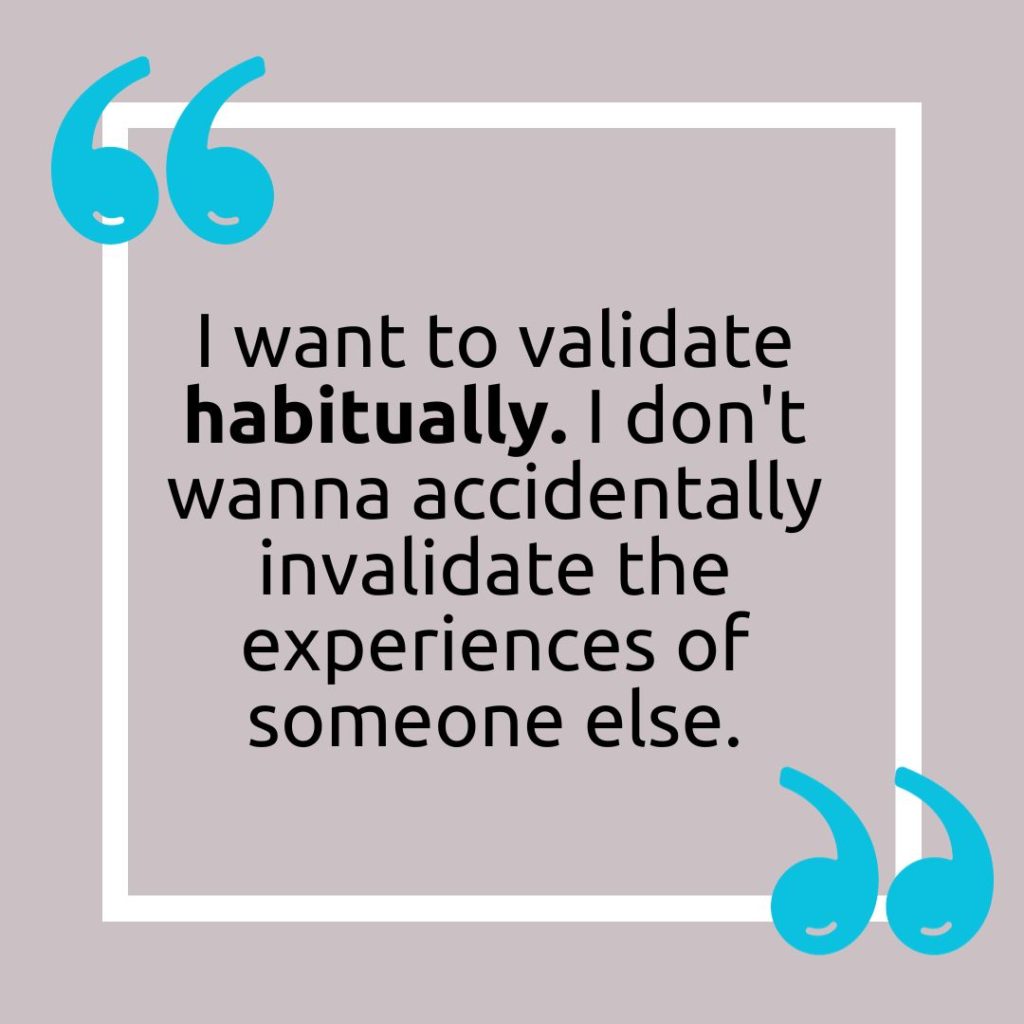
Matthew Fray, author of This is How Your Marriage Ends.
Matthew also talks about anxieties and insecurities within relationships while emphasizing the relevance of Maslow’s hierarchy of needs in understanding human behavior and emotions in a partnership. As they delve deeper into these topics, listeners are offered real-life examples, stories, and advice on how to navigate similar situations in their own lives.
By using a candid approach to discussing relationships and marriage struggles, this podcast episode provides valuable insights for anyone seeking to deepen their understanding of marital bonds and learn from Matthew’s experiences to strengthen their own relationships.
Remember that relationships require effort and hard work. It’s essential to continually invest time and energy into nurturing your relationship. By doing so, you can create a strong and loving bond that can withstand the test of time.
Relationships were one of the main topics of conversation during physical therapy treatments. The importance of them, and even how people decided to place different emphasis on them were discussed. It very revealing to see how the cancer diagnosis revealed how many hidden unresolved issues were in relationships. At the end of the day, the best relationships continuously take small steps to have a good time and enough time to build connections for memory lane. It is important to recognize that positive emotions towards oneself and each other can create long-term love.
In my podcast interview with Matthew Fray, we talk about the small cuts that hurt relationships. When a major life event like cancer comes into the picture, the frail relationship may not make it. But… it doesn’t have to be this way.
25 Journal Prompts That Will Cultivate Gratitude in Your Daily Life
Transcript of In the Rising Podcast Interview or Listen In
This is how your Marriage Ends: Matthew Fray Shares Habits that Erode Marriages.
[00:00:00] Matthew Fray: I want to validate habitually. I don’t wanna accidentally invalidate the experiences of someone else.
[00:00:14] Bettina M Brown: Hello. Welcome to In the Rising Podcast. My name is Bettina Brown and this is the platform I’ve chosen to talk about living a life that’s in alignment with your hopes, your dreams, and your goals. And you know what? One of the main goals for many of us is to have a fulfilling relationship and a fulfilling marriage.
Well, thank you for your time, Matthew, and it’s a pleasure to have you on my podcast. But it’s also, I’m saying that out of both sides of my mouth because you’re here, because you are now kind of a, a relationship coach. You’re, you’re not kind of, you are, you’re a writer because of a traumatic event in your life, right?
Yes. And you have just written this. This is how your marriage ends. You have a blog, but I would like to just start with where you came up with the idea of being so verbal. You mentioned it in the book, but I’d like you to, to highlight how you went from, I’ll just journal to, I’m gonna put this public.
[00:01:15] Matthew Fray: The most honest answer is that I felt really, like, really bad.
I didn’t know a human body could feel as bad as I. I, I’d never had any frame of reference for that level of like, pain before, and this was like nine years ago, nearly to the day. She, she moved out on April 1st, 2013. And so the following two, three months, I was struggling a lot and I, I.
Don’t wanna make it seem like I have a problem. Not that I’m judgy about people who use substance to feel better, but I was drinking like vodka to like numb and one night I drank a little bit too much. I called a phone a therapist via my HR department’s like benefits policy. Someone to gimme like, call this 800 number.
And I’m talking to her and she’s like, you should journal your feelings cuz you’re a writer. And I’m like, fine. Okay, I’ll do that. And then instead of the private like journaling process that I think is really healthy and that I think people should consider doing because it’s really cathartic, is I just put it on the internet.
I’d spent my life, my professional life writing for public consumption. So it was like, I’m just gonna do that. But I did it semi anonymously. I was just Matt at the time. I was just Matt. And I was just like a blogger. I didn’t think anybody was gonna read it. I just launched this WordPress blog out of nowhere.
But what I realized as I was sharing these stories, I was starting to get feedback from people who were organically like stumbling on it, and people were saying, wow, this sounds exactly like my relationship. This sounds exactly like the things I think, or the things I feel, or more often the things my relationship partner says, does things and feels, because it was a lot of women in the relationship.
More so than men interacting with this content at the beginning. And I mean, that’s really it. And then nine years later it morphed slowly into I’m gonna leave my professional life as a writer and corporate marketer, and I’m gonna like be relationship coach guy and I’m gonna do it in this somewhat unconventional way.
By sharing my personal stories rather than being. You know, just the person who like listens and offers some sort of like clinical prescriptive feedback. That’s not who I am. I’m like, Hey, here’s the version in my life. Does this sound like your life? And a lot of people are like, exactly. That’s exactly what’s usually meant.
It’s exactly what my wife says to me. And I’m like, okay, so here’s what I used to believe and why I thought she was wrong and I was right. And now here’s why I. I failed my wife and my marriage. It wasn’t because I was a bad person or I did bad things, I just eroded her trust in my blind spots over and over again.
Mm-hmm. And to me that’s the story of, of relationships almost everywhere. Yes.
[00:03:48] Bettina M Brown: Yes. And, and in your book, you know, you write it in a way that I feel like I could sit on the other side of the table and, and we’re just talking. It’s not in a clinical manner. You’re like, this is my story and that’s how people.
With our pains. Right. And, and you nail so many parts of it. You also talk about security and trust. You talk about Maslow’s, you know, triangle and, and, and what we all need. But where, when did that final, like when did, how did you feel your security and trust kind of either fell apart both ways for you towards your wife and your wife towards.
[00:04:25] Matthew Fray: You know, it’s interesting. I got, I was on a TV program in the UK yesterday. It’s hard every day’s blending together. And I got, somebody wrote me and said, Hey Matt, is there anything in the book about anxiety and insecurity in the relationship? And I said, you know what? No. At least not on my side of it.
I mean, I touch on it, but that was huge. I spent 18 months in the guest room at the end of my marriage. It was, it was a, a, a dying relationship that like I philosophically wanted to save, but behaviorally was not doing the right things that would’ve helped to restore trust in the relationship. I didn’t even know how to think about it the right way at the time.
But I felt extremely anxious and extremely insecure. And for the first time in my life,, I didn’t feel comfortable in my own skin. And I didn’t, I couldn’t trust her. I couldn’t trust myself. I don’t mean I couldn’t trust her cuz she wasn’t trustworthy. I mean, I couldn’t trust her because I felt bad.
It, well, she didn’t do anything. It’s incredible the way we project everything that we think and feel inside us, but to me the story of relationships are, the, the primary one, there are certainly traumatic, obvious, horrible things that people endure. And I do not mean to minimize those because they’re awful.
But I think that like the great majority in like a math way, Are a bunch of people who mean, well, they’re like, I’m volunteering to be in this relationship on purpose. I genuinely love my partner and I wanna live with them forever. I really do mean this promise of always to them. But then five years in, seven years, in 10 years, in 15 years in, it feels really bad.
And people are like, I don’t want to have this be my daily experience for the rest of my life. And I think a lot of people struggle to define why that feeling exists. And it is my belief that we slowly, metaphorically speaking, paper cut. One another and the relationship until it’s bleeding out, until it doesn’t feel safe anymore, and we don’t do it in these big, obvious things I call major marriage crimes way, which is really obvious like infidelity and physical abuse and just really awful toxic things that everybody universally seems to agree are awful and toxic.
We do it in these nuanced, subtle ways. Our inability to have a conversation that heals something that feels bad for one of the people. Somebody’s like, Hey, I hurt. And it might be something really minor. Like you never like put this dish away that you leave by the sink. And it really upsets me that you don’t do it.
And I get so hung up and a lot of people get so hung up on that dish, doesn’t matter. Like you are going to elevate that dish to a marriage problem and then like make me out to be a bad guy because of it. And then we get really defensive and we have philosophical debates and it’s ridiculous. But to me, the thing we need to do is say something that matters to the person I promised to love forever.
If they have the, if they don’t have the ability to come to me with that and say, something’s wrong, please help me with it. If they never are made whole, when they’re in that scenario, of course over the long term, they’re gonna not feel safe. They’re gonna not trust you in the relationship and a person’s gonna wanna leave and I get it.
But 10 years ago I thought tooth and nail, that the dish should be able to sit there and that she. Care about it because it doesn’t matter. Yeah. And it was, it was the wrong, it was the wrong approach.
[00:07:40] Bettina M Brown: And what, what, what you talk about is in, in your book several times is that you mentioned, yeah, the, the dish in real life really does not matter, but what it represents to that other person and to be able to distinguish.
The difference is quite important. And that takes some, where you said, put yourself in your partner’s shoes. You know, if it, if there’s that one thing you know, triggers them, then it is okay to behave in a way that it doesn’t even become a trigger for them. It shows kindness and it shows caring in many different ways.
And you put that in your book. I show I love you by doing this, this, this. It’s not just words.
[00:08:19] Matthew Fray: The way that I think about it today is that I wanna protect a person that I love, that I respect. This doesn’t have to be relationship partners. It can be children, it can be our best friends, it can be anybody with whom we crave.
A healthy relationship, romantic or otherwise, and I, I wanna protect them from feeling bad because of things I do or don’t do. And I wanna accept responsibility. What I used to do is I do stuff and then if somebody complained about it, it was their problem for being hypersensitive. But now, and, and, and that’s fine.
You know what, and that’s a fine approach. It’s, it’s not, to me, it’s not morally repugnant to do that. I just think the math result of that decision means you’ll always have relationships that lack trust and intimacy and mutual respect, at least with your closest people. And I, and I think if we want to choose trust and intimacy and connectivity with our closest people, we just have to make a conscious decision to say, okay, someone experienced what I did as harmful.
I didn’t mean to, but instead of judging them as weak or crazy or stupid or wrong, I’m gonna say, wow, I care about that person. I would never want them to hurt. So I’m going to seek to understand it. And then moving forward, I’m gonna take some responsibility for not like allowing that same thing to happen.
If it’s within my sphere of influence, I’m gonna do something about it. And then when that person sees evidence moving forward that we’re like mitigating the bad experience for them by not doing the thing, or by stepping up and doing something on their behalf, trust blooms, safety blooms, and then we get.
Security in our relationships. And that’s what makes, I think, relationships thick. And, I didn’t, I didn’t know how to think about it that way. And I think a lot of people don’t know how to think about it that way. Not because they’re incapable, because they, it’s never been presented to them in that way before.
And you talk about that. They’re trying to, trying to present it in that way.
[00:10:13] Bettina M Brown: You, you definitely hone in like your parents divorced, you didn’t, you know, when you were young. That’s kind of the story of a lot of us. At some point in our. And you also talk about this, this is what you said. “Maybe I was hypersensitive because of my parents’ divorce.
Maybe I was worried about what my friends and family would think of me for failing at the most important job I had. Maybe I was afraid of being alone. Maybe I just missed my wife and son, you know, thinking because as a person of divorce, myself, parents, myself, you know, it definitely hit home that this was a failure and that your children.”
The failure of their family unit. How do you now, or you know, I don’t know how old your son is, how do you approach this subject of relationships with your son now so that he doesn’t feel like, oh, this is just expected. We don’t like each other, we divorce, you know? Yeah. How do you go about that?
[00:11:07] Matthew Fray: You know, it’s funny, I’m, I’m pretty sensitive about discussing spec specificity with his mother, like where I’m not trying to like rehash that so much, but it, but he gets it and he’s, he’s 13.
He’s well aware of the work I do now him, and he’s, he gets it. He understands fundamentally that my work’s based on my regrets. That my marriage to his mother didn’t last. And in real time I’m trying to educate him on lessons and empathy and compassion and mindfulness. When I see things that pop up, there’s a lot of conversations about racism, about sexism.
Jokes in movies. Even that we, I don’t know if you remember the movie, the Sandlot. There’s a joke where a kid insults another kid by saying he plays ball like a girl. And I remember specifically pausing it after that and we’d both laughed cuz it’s like funny in the scene. But I wanted him to understand, I’m like, I need you to understand why that is a dangerous thing to like at least be.
Of the offensiveness, 50% of human beings on this planet feel when this idea of doing something like them is somehow bad or worthy of mocking or judging or making fun of, right? And that applies to race, that applies to sexual orientation. Everybody gets to have their opinions about all of these things.
I don’t, I’m not trying to be like on my moral high horse here. I just think there’s real value in giving, like caring about, I was gonna say something, profane it. We should care about other people. And I just, I really believe that strongly. And I always thought that I did, but then I didn’t take any responsibility for how they experienced me.
Mm-hmm. And I’m trying to give my son like the gift of being aware regardless of how like kind he is and how he is a good kid. He’s grit. He really is a good kid. But that doesn’t mean he’s not a threat. In fact, he drives me nuts. See, he’s inconsiderate of me constantly. And if he brings that into his future adult relationships, it’s gonna be a problem.
And so we have those conversations and I’m, and I am proud of it, but in terms of like getting specific about his mom and I, the best I can do is like love in a non-romantic way and respect her as a co-parent. And I’m really proud of. The, I’m really proud of the growth in those nine years. There’s a lot, I think of trust and respect there between she and I in a way that 10 years ago it was a train wreck, you know?
[00:13:24] Bettina M Brown: Yeah, yeah. And I, also appreciate the way you said that because, I, I get along with my son’s father. Because I can see him as someone else, as my, besides my ex-husband, right? I can see him as a person who’s a providing for his son, his new family, and I will always be a part of that. And so it’s nice to see that I can now appreciate him as a human being.
Where in our marriage we maybe did not. So I think there’s also that blessing in that not every divorce has to be where one side always hates the other side. And there’s this all adamant because at the same time, that hurts our children. And so with your book, your blogs, you’re talking about growth to actually talk to someone else for what they represent to your children, not necessarily what they were in your life.
[00:14:13] Matthew Fray: Yeah. I, hope I don’t spend an enormous amount of time discussing post-divorce co-parenting in the book certainly, but, but every lesson I’ve learned, Very organically, like feeds that role in my life that I want, because in my coaching work, I focus on two, you know, we’re gonna have time to get into either of them, but I, I, I think as you know, my, my core habits I focus on are, I want to validate habitually.
I don’t wanna accidentally invalidate the experiences of someone else. I don’t wanna communicate that everything I think and feel matters more to me than everything you think and feel. And it’s always gonna be this way because that. Ends relationships over time. But I did that in my marriage. I was an invalidator, and then I wanna be considerate.
And what I mean by considerate isn’t like polite. I mean sort of, I guess. But I wanna make sure I’m always, always vigilantly, including someone I care about in my decision-making process. A perfect example is today. I’ve got nonstop interviews today, nonstop as we’re talking here, and I texted and I apologized for waiting till this morning to do it.
I’m like, I’m so sorry, but I’m not gonna be available until like, you know, 4:00 PM this afternoon. And I’m like, I should have told you like two or three days ago, just in case something came up. And that’s the difference between me today and me 10 years ago, is it wouldn’t even occur to me. Wouldn’t even have occurred to me to be thoughtful.
Like how she might experience it. Because what if something came up with her son today and she like needed me to do something to pick him up or to do whatever and all, and I’m just, I’m radio silent for the whole day. Like, that would be awful for her and it would be awful for my son potentially.
And like that’s the work is learning how to like mindfully care for someone else. And, and, and, and, and predict or at least guess what their experience might be based on what you’re doing or saying. And then care enough to like, mitigate anything that could be negative or painful for them. And I don’t know if that sounds like ridiculous to people or to you, but like that’s how I think about it.
And I still mess up. Like I said, I waited till this morning to send that text, but she was really, really cool about it, fortunately. And I don’t know that’s the difference between 10 years ago, me and today. Me.
[00:16:28] Bettina M Brown: Yeah. And that’s, that’s. And in growth, you’re a great, your son, your family gets to see that and you have influence on other people, on other people reading your book, your blogs, et cetera.
And now what would you say would be one habit that you feel would make a, a great change from the majority of the people that you, giving you feedback on what you’re writing? What is one habit that we are doing maybe incorrectly and one thing that we. Just be more aware of, mindful, yeah, like you mentioned.
[00:16:59] Matthew Fray: I wanna be, I don’t like to stereotype and I don’t like people to feel like judged or, or left out or picked on or anything, but I think men, respectfully, respectfully, I think men are a little bit more guilty of this than women. Not like by virtue of being men, but just as a matter of fact, if we lined up every person on earth, I think men would do this more often than women is what I mean.
I think men have a nasty habit, and I sort of referenced this already. And I do mean that inadvertently invalidating the lived experience of their romantic partners. When the romantic partner comes and says, Hey, this thing’s happening and it hurts me, or You did this, and it hurts me. I believe we respond in one of three ways.
We disagree that that what they think happened, and we try to correct it. Like, that’s not what happened. This is what happened. Your feelings are wrong because it didn’t happen the way you said. The second way we invalidate is we say, okay, that happened, but why are you making such a big deal out?
Like you’re definitely overreacting to this minor thing. You should feel about it. The way I feel about it, that’s version two and version three is defensiveness. Matt, you did this. It hurt me, and I’m like, wait a minute. If you understand like what I believed or what I was trying to do, then you won’t be mad and you won’t hurt, like feel hurt anymore.
None of those are evil things, but what they do is they invalidate the lived experience of the other person. And then they don’t get to trust us anymore 10 years from now because they know if something’s wrong and they come to us to try to recruit us to help ’em with it, we’re gonna choose our beliefs and our feelings over theirs.
To me, that’s the low hanging fruit habit that men, but all people can bring to their relationships. That really, really can like change the tide in the context of the amount of trust that exists between two people. Somebody needs to feel safe coming to you and saying something’s wrong. Mm-hmm. And trusting that some form of like repair’s gonna occur.
And the truth is, my wife could not trust me. She couldn’t and I, but I didn’t know how to think about it that way. And I think most people, men specifically to be fair, don’t know how to think about it that way because I don’t think they’ve ever had it presented to them that way. I don’t think anybody’s ever said, Hey, does this, like, do you understand why somebody would feel so bad if every time they hurt you implied they shouldn’t for life, and then they should just subject themselves to that for forever?
I think that when presented that way, the vast majority of people who love their partner will say, oh my. When you put it that way, and that’s what I’m trying to do. I’m trying to put it that way so that people can learn how to see how we accidentally hurt the people that we care about because our disagreements are honest, but we, need to become mindful of how they experience the disagreement and then in a subtle way, demonstrate love and care for someone else.
We just have to, or we eventually don’t get to have a good relationship with them anymore or, or want.
[00:19:51] Bettina M Brown: Or one at all. And so there are consequences to not being mindful. And if this is a goal, a great relationship, then it is. It is not just, oh, I’m, I’m a status. It is work. Putting into that.
[00:20:03] Matthew Fray: Thank, thank you for saying it that way because I think not having a relationship’s a choice, and I think people that don’t agree with like what we’re talking about right now are free to not have relationships.
That’s fine. But if you want one, to me, the, if you don’t do this, I’m not like trying to predict doom and gloom, but I absolutely believe you’ll never have as fulfilling a relationship or as fulfilling a life as you could otherwise have by doing like this invisible quote unquote work and relationships.
Right.
[00:20:34] Bettina M Brown: And sadly the statistics validate your last statement. So that’s just the marriage, that’s not the breakups before or after. That’s right. How can people learn more about you, connect with you, what the work you’re doing, et cetera?
[00:20:47] Matthew Fray: Thank you. My home on the internet is Matthew frey.com. That’s Matthew with two T’s.
And then, you know, they’re links to all the socials and stuff there. And then the book, if anybody’s interested, be super flattered if anybody wanted to check that out. It. I can be found there and if, if, if the things that we just got done talking about have, like, if it sounds like what’s going on in your life, I would encourage you.
I hope people do.
[00:21:12] Bettina M Brown: So, thank you so much for listening to this podcast and I hope it was powerful for you. And if you feel that this was beneficial for you or you know, someone. Who needs to listen to this podcast, I would encourage you to share it and also leave a five-star review. It does so much to put this podcast, this episode into the hands and ears of those that it can make a difference.
And check out Matthew Fray’s website. Learn more about this, and I wish you all the best and let’s keep building one another up.
Until next time…

